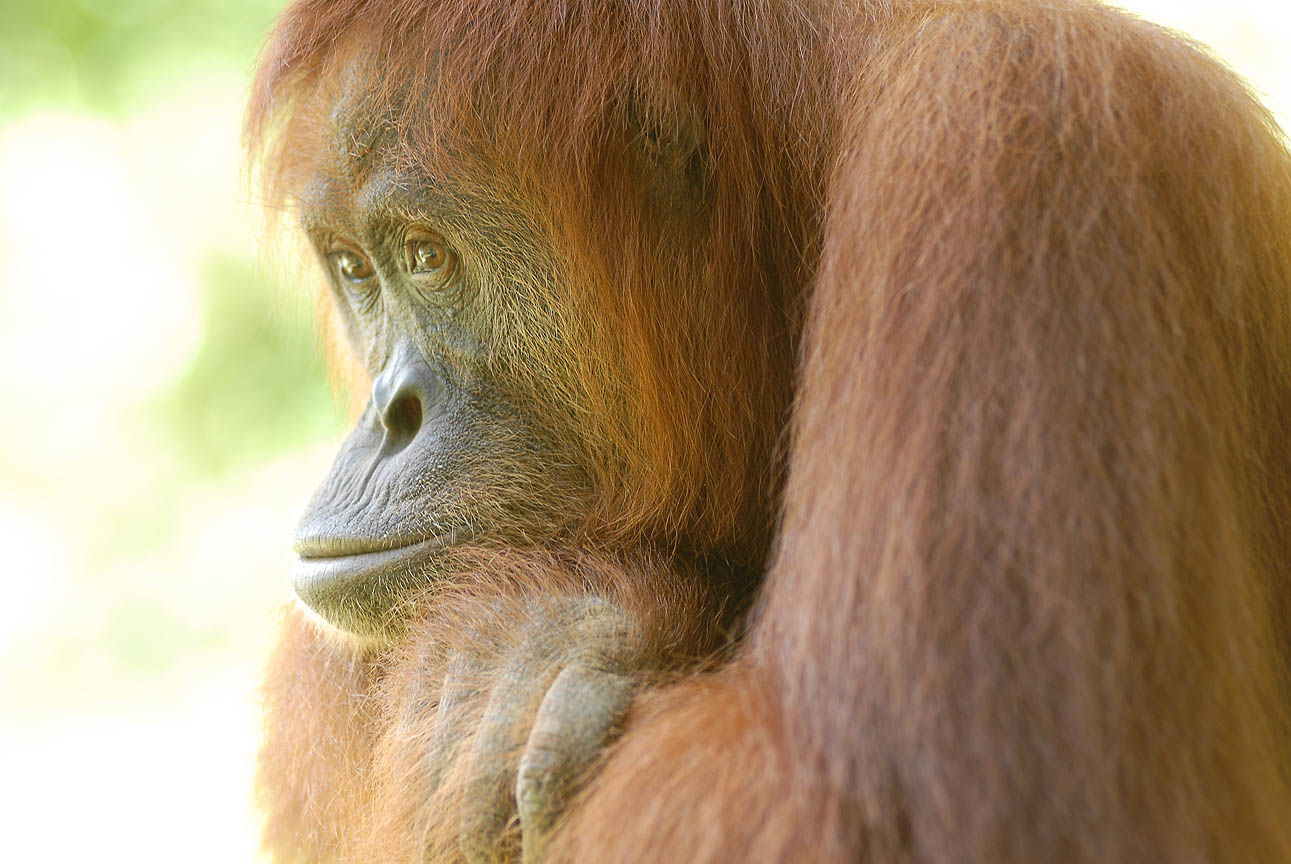The Science Behind Our Rewilding Philosophy: It Works!
Rewilding isn't just a nice idea – it's a science-backed approach to restoring our planet's vital ecosystems. At the Sumatran Orangutan Society (SOS), we've embraced this philosophy, focusing on creating self-sustaining natural systems that benefit both orangutans and the communities that share their rainforest home.

Rewilding: A Win-Win for Biodiversity, Climate, and Communities
We’re supporting our partners to create functional, sustainable ecosystems – a place where biodiversity flourishes and people can thrive. This means:
- Combating Climate Change: Restoring forests is a powerful tool in the fight against climate change. These revitalised forests act as carbon sinks, absorbing CO2 from the atmosphere and regulating the global climate. Rainforests act as crucial watersheds, absorbing huge amounts of rainfall and reducing the risks of floods, landslides and soil erosion.
- Protecting Endangered Species: Our rewilding work is crucial for the survival of vulnerable species, like Sumatran and Tapanuli orangutans. Orangutans share their forest home with an incredible diversity of wildlife, including other iconic and endangered species such as the Sumatran tiger, Sumatran elephant, Malayan tapir, and Sunda pangolin. By restoring their habitat, we’re securing a thriving future for these species, too.
- Safeguarding Resources: Healthy forests play a vital role in protecting water sources and preventing soil erosion. Rewilding helps ensure access to clean water and fertile land for local communities. The reintroduction of certain wildlife species – such as Sumatran elephants, or Tapanuli orangutans, which disperse seeds and open up forested landscapes – can accelerate ecosystem restoration, making forests more resilient to environmental changes.
- Creating Sustainable Livelihoods: Our approach integrates the needs of local communities, creating opportunities for sustainable livelihoods that go hand-in-hand with conservation. By rewilding landscapes, ecosystems regain their natural productivity, supporting activities like ecotourism and sustainable agroforestry, which provide long-term benefits for both people and nature.

The Transformative Power of Rewilding
In the space of just a few years, cleared landscapes can be thriving and dense with life once more. Fast-growing pioneer trees, planted as saplings, provide a canopy where orangutans can build their nests within three years. The impact is undeniable!
In 2024, camera traps in Selamanya Hutan – a former oil palm plantation – captured wild pigs, macaques, elephants, and even porcupines exploring this newly forested area. This is a testament to the speed and effectiveness of rewilding efforts, and the dedication of our partners at the Orangutan Information Centre.
The Rewild Fund: Powering Change Through Science
Through the Rewild Fund, businesses are partnering with SOS to put rewilding science into action. We’ve already supported our frontline partners and forest-edge communities to rewild over 2,000 hectares in the past decade. As part of the UN Decade of Ecosystem Restoration, we will support the rewilding of five times as much land for the benefit of orangutans, people and nature.
Join the Movement
Rewilding is about more than just restoring landscapes; it’s about restoring hope. It’s about creating a future where nature and people can coexist and thrive.
Your business can be a part of this change! Join the Rewild Fund and help us power the science-backed solutions that are making a real difference for orangutans, people, and the planet. Learn more: The Rewild Fund – SOS – Sumatran Orangutan Society


You can help protect Sumatra's Orangutans. Click to get updates
